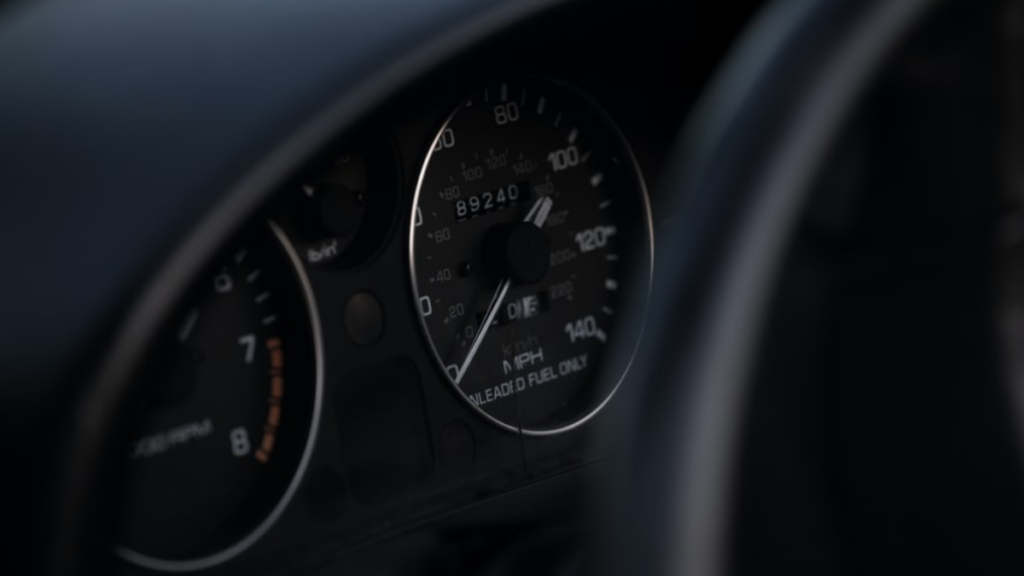In the 1920s cars never had Air Conditioning in them. But later when they did in Europe, only the rich could afford one with AC because the air conditioning was more of a luxury or premium automotive feature.
That terrible truth, however, is nothing more than an old folk story like the Untold Legend of the First SUV. Look at us: we don’t all have a million dollars in our bank accounts, but we all have cutting-edge technologies and, of course, air conditioning in our vehicles. If you’ve observed how rapidly your vehicle uses more gas, you might be wondering if this is the price you must pay to enjoy “this luxury”. Does running an AC use more gas? Let’s find out together.
Running the AC uses fuel since it’s all powered by the car’s engine. However, when driving at a speed slower than 35 mph and your AC turned ON, you’ll use more gas compared to when it’s OFF and the windows rolled up. Similarly, if you’re traveling above 35 mph with your windows rolled up and your AC turned on, your car won’t use more gas. This is because, at high speeds, wind resistance is significant, and the additional turbulence created by rolling down the windows consumes more gas than running the AC.
| High Speed | Low Speed | |
| AC OFF, Window Closed | Less gas | Less gas |
| AC OFF, Window Open | More gas | More gas |
| AC ON, Window Closed | Less gas | More gas |
The rate of gas consumption may differ from one vehicle to another, however, we’ve done some research from different studies to give you the best answer. Before you go further into this piece, I’m excited to let you know we have a growing community of car owners sharing and learning new tips about their cars every day. you can join the Inner Circle here.
…
If you joined the community, then it’s glad to have you.

Does AC use more gas?
As to the subject question “does AC use more gas”, there are som are some interesting answers to it. However, the greater question worth asking is -whether it is more economical to drive with the air conditioning on or with the windows open.
The answer to this question is primarily determined by the speed at which you are driving. If you drive a car in slow traffic at 30 mph with the A/C on, you’ll use more gas than if you leave the A/C off and the windows up. When driving down the turnpike at 70 mph, however, it is significantly more effective to keep the windows closed (to reduce drag) and running the air conditioning.
Does AC use gas when windows are down?
Running the air conditioner consumes a small amount of gas, but keeping your windows rolled down consumes far more. On the other hand, your AC will almost likely waste more gas if your windows are rolled up in stop-and-go city driving because there is little aerodynamic benefit.
Running the air conditioner with the windows rolled down is the worst thing you can do since you’ll get the worst of both worlds.
Using the AC at lower speeds like 35 mph or less, or when stopped at a signal, consumes more gas. However, running the air conditioner at speeds greater than 35 mph, and especially at highway speeds, saves gasoline.
The reason for this is that at high speeds, wind resistance is significant, and the additional turbulence created by rolling down the windows consumes more petroleum than running the AC. At highway speeds, aerodynamics is critical, and any additional drag or turbulence will severely reduce your gas mileage.

Does it take more gas to run the air conditioner?
How much gas does AC use?
The air conditioner in a car takes roughly 4 horsepower to operate, which must be obtained by burning fuel. If your average speed is over 30 mph, having your windows open uses a lot more gas than having your AC system on.
When you reach highway speeds, the majority of the fuel your car consumes is simply to move all of the air out of the way (also known as wind resistance). When you open the car windows, you generate a lot of drag.
The faster a car travels down the road, the more aerodynamics and wind drag enters the equation, and the engine’s power efficiency and fuel mileage suffer as it travels faster than the originally specified ideal speeds, which are typically in the 55 to 80 mph range.
What happens under the hood
Under the hood, a gasoline engine pumps a mixture of air and fuel (gasoline) into cylinders, ignites it, and uses the heat energy released by combustion to generate power. With aid of the serpentine belt, accessories connected to the engine consume a portion of the power that it creates.
The AC system does, in fact, require a modest amount of horsepower since the AC compressor needs 3-4 horsepower to run. That means a small amount of gas is used to generate power that would otherwise go unused if not for the AC system.
Due to excessively high temperatures and pressures in the AC system, your engine fan may kick on when idling or at low speed on extremely hot summer days. That will necessitate additional power from the alternator, which may cause your car to idle at a high speed in order to handle it, consuming more fuel.
The A/C consumes far too much energy to be powered by the car’s battery. As a result, it must operate on a belt attached to the engine, putting additional strain on the engine. With the increased strain on the engine, more power is required, and the only way to obtain more power is to burn more gasoline.
Closing the curtain
As to the question, does AC use more gas? I’ll drop my pen here by saying that it’s all a matter of your driving speed and what you’re willing to trade for the other. The additional turbulence you get when your car windows are rolled down can affect gas.
Driving a car in slow traffic at 30 mph with the A/C on will use more gas than if you leave the A/C off and the windows up. If it’s a cool day and you don’t need to roll down the windows, you can save some gas by turning off the air conditioning. Since the cabin is easily cooled, you shouldn’t have a problem and you don’t have to run the AC much.




